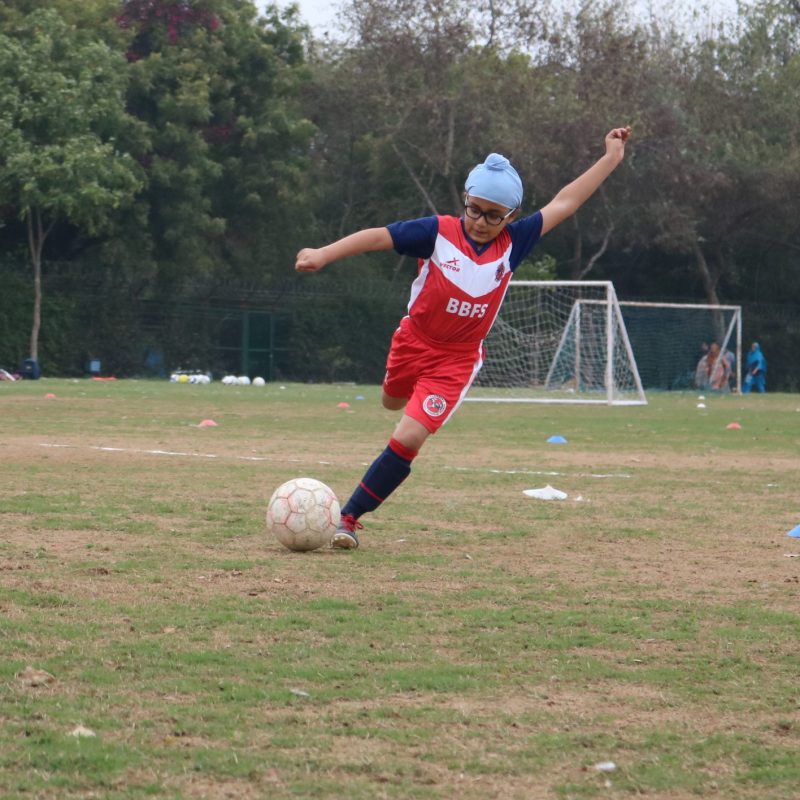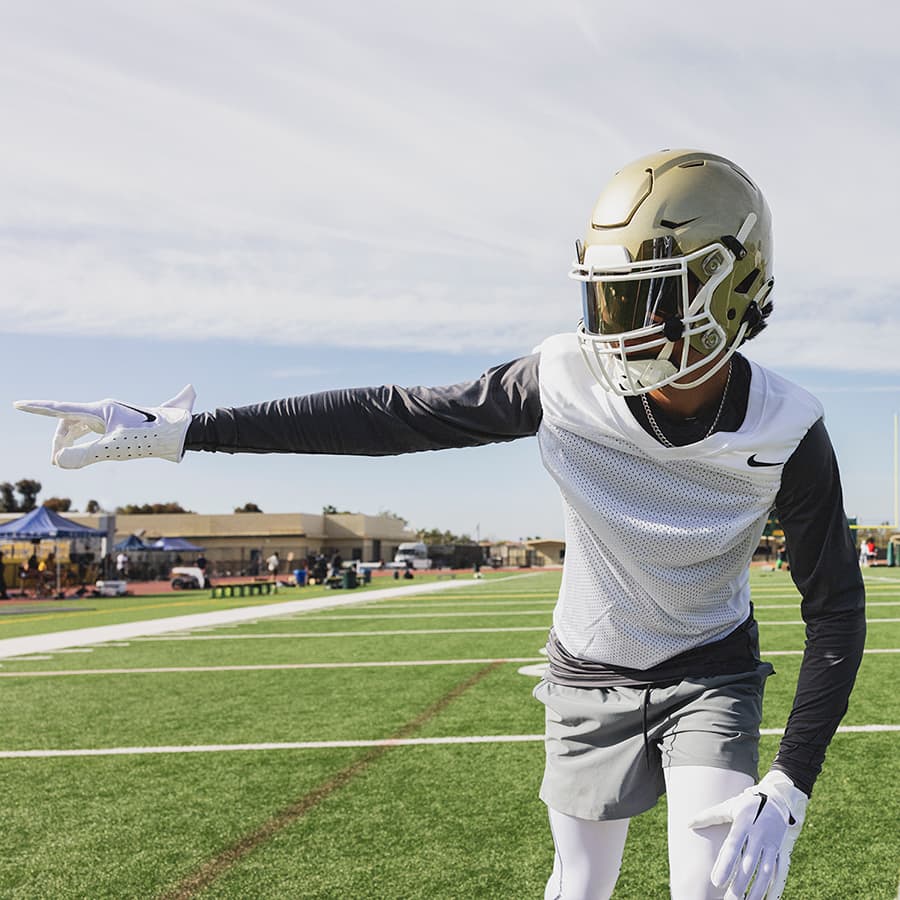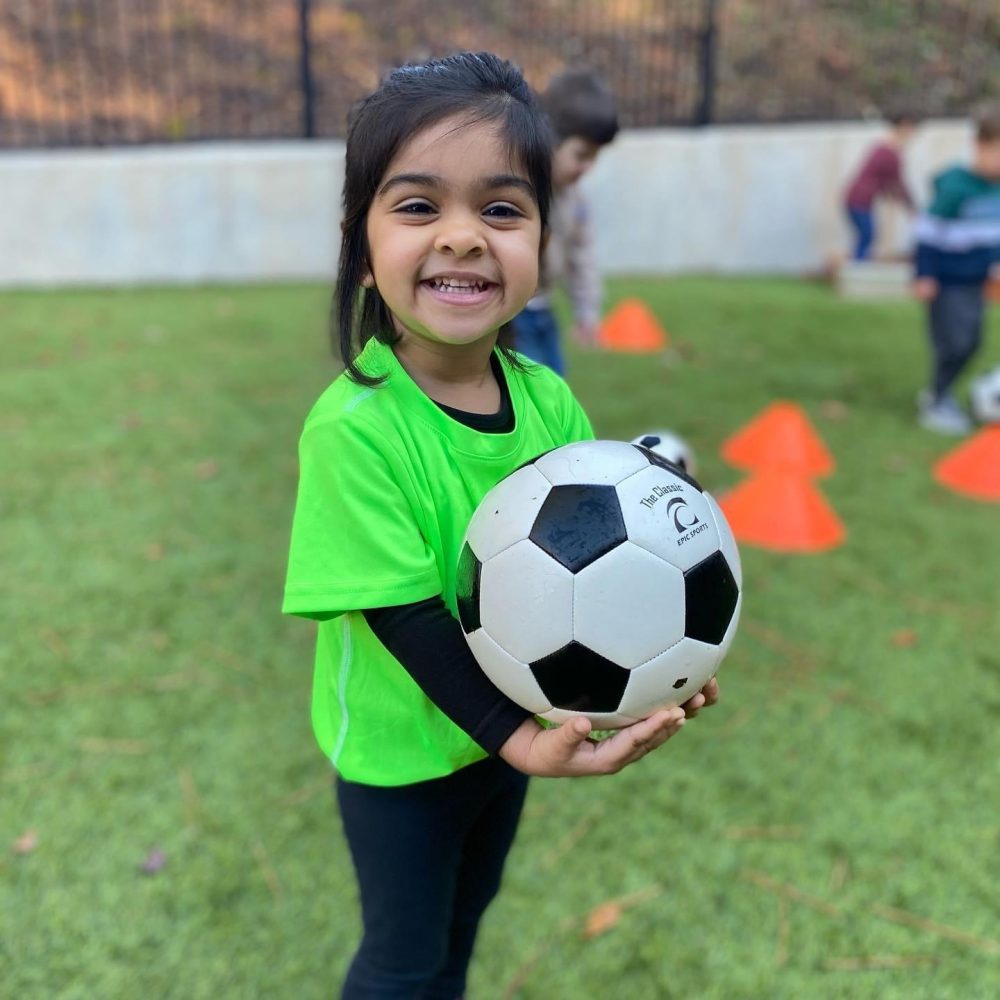Essential Equipment and Gear
Selecting the Right Football and Shoes
How to play football for beginners?Choosing the right football is crucial for beginners. Opt for a size 5 ball, which is standard for adults and youth over the age of 12. The ball should have a good grip and be made of durable material to withstand various weather conditions.

When it comes to shoes, go for football cleats that provide good traction and support. Make sure they fit well and feel comfortable, as this will greatly impact your ability to play effectively.
Importance of Comfortable Athletic Clothing
Wear athletic clothing that allows freedom of movement. It should include a breathable jersey, shorts, and socks. Suitable apparel enhances performance and comfort during the game.
Protective Gear: Shin Guards and Goalkeeper Gloves
Shin guards are vital to protect your legs from injuries during tackles. Choose guards that fit securely and offer substantial coverage.
Goalkeeper gloves are essential for those playing in the goalkeeper position. They provide grip and protect the hands during saves. Ensure they fit well and offer adequate cushioning.
Understanding the Rules of the Game
To play football with confidence, it’s essential to grasp the basic rules. Here’s an easy-to-follow rundown of the core principles.
Learning the Basics: Objectives and Scoring
The aim is simple in football. Two teams compete to score the most goals. To score, kick the ball into the other team’s net. The team with the most goals wins the match.
Offside Rule and Fouls Explained
Avoid offside by staying behind the ball when it’s played. Break this rule, and play stops. Fouls like tripping or pushing can lead to free kicks or penalties against your team. Be mindful not to use your hands unless you’re the goalkeeper within your area.
Throw-ins, Corner Kicks, and Goal Kicks
When the ball goes out over a sideline, the opposing team throws it back in. If it goes out behind your goal, the other team gets a corner kick. However, if they last touched it, you’ll take a goal kick.
Fundamental Techniques in Football
Mastering First Touch and Ball Control
Achieving a stellar first touch is crucial for any footballer. Train to receive the ball smoothly, allowing for easier control and quicker plays. Practice various speeds and angles to enhance your adaptability during actual games. Continuous repetition will build your confidence and precision.
The Art of Passing and Receiving
Passing is not just about transferring the ball; it’s about ensuring your teammate can comfortably receive it. Practice short and long passes, using both feet. When receiving, focus on cushioning the ball gently to maintain control and prepare for the next move.
Dribbling Skills to Evade Opponents
Dribbling effectively requires agility and awareness. Practice with cones to simulate opponents. Work on changing your speed and direction swiftly to outmaneuver defenders. The ability to keep the ball close will allow for better maneuverability.
Shooting Techniques for Goal Scoring
Scoring is the highlight of how to play football for beginners. Position your body correctly and choose your striking surface wisely—inside foot for precision, laces for power. Aim for corners where goalkeepers struggle the most.
Defensive Strategies for Protecting Your Goal
Good defense is about anticipation and positioning. Learn to read the game and anticipate the opponent’s moves. Practicing tackling safely and effectively, focusing on gaining possession rather than just disrupting play. Position yourself strategically to shield your goal and intercept passes.

Practicing Effective Football Drills
Practice is key to mastering football. Well-designed drills can transform your skills from beginner to adept.
Solo Drills to Enhance Ball Mastery
Start with solo drills to get comfortable with the ball. Simple exercises like juggling, dribbling in place, and ball manipulation with different parts of the foot are fundamental. As you progress, practice changing directions quickly and controlling the ball at different speeds.
Partner Drills for Passing and Receiving
Find a partner for passing drills. Work on short and precise passes, as well as longer balls that challenge your control on receiving. The focus should be on accuracy and the correct weight of the pass to make it as realistic as possible.
Shooting and Dribbling Drills for Precision
Set up targets for shooting drills and work on hitting specific areas of the goal. Combine shooting with dribbling drills by dribbling towards the goal at speed, then finishing with a shot. Incorporate changes of direction and pace to mimic game conditions.
Defensive Drills to Improve Tackling
For defense, practice positioning, and one-on-one tackling drills. Work on timing and learn to tackle with minimal contact to avoid penalties. Concentrate on the ball and your footwork, as good defense is often about being in the right place at the right time.
Building Tactical Awareness
Understanding tactics is crucial as you learn how to play football for beginners. To excel in soccer, you need a strong sense of tactical awareness. This involves knowing where to be on the field, working well with teammates, and applying strategies effectively during a match.
The Importance of Positioning on the Field
Positioning is key in football. Always know your role and area on the field. Stay alert to shift positions as the game unfolds, enhancing your team’s defense and attack.
Developing Teamwork and Communication Skills
Strong teamwork stems from good communication. Always talk with your teammates on the field. Use clear, quick calls to coordinate movements and strategies. This teamwork makes your group more effective and hard to predict.
Applying Game-Play Strategies in a Match
Apply strategies learned during training to real games. Focus on using different plays and formations to find weaknesses in the opposition’s defense. With practice, you’ll efficiently contribute to your team’s overall strategy and success.
Joining a Team and Playing Competitively
Joining a football team can boost your skills and experience. It exposes you to competitive play and enhances your understanding of teamwork and game strategy.
Finding Local Football Leagues or Teams
Start by searching for local football leagues or clubs. Many communities offer teams for all skill levels, from beginners to advanced. Check with local sports centers or online forums to find opportunities near you.
Emphasizing Teamwork and Sportsmanship
Once on a team, teamwork becomes essential. Work with your teammates, support one another, and focus on group success. Display sportsmanship at all times; respect for rules, opponents, and officials is paramount.
Ramagya Sports Academy: Structured Training Program
For those seeking structured learning, Ramagya Sports Academy offers comprehensive football programs. Their training focuses on technical skills, strategic play, teamwork, and sportsmanship. Under expert guidance, beginners can rapidly develop their abilities and passion for the game.

Staying Safe and Playing with Sportsmanship
When you learn how to play football for beginners, safety and sportsmanship come first.
Importance of Warming Up and Stretching
Before you play, always warm up. Start with light jogging, then stretch your muscles. This helps prevent injuries. Stretch well, especially your legs, to ensure flexibility and reduce the risk of strains or tears. Warming up prepares you mentally and physically for the game ahead.
Upholding the Spirit of the Game through Fair Play
Playing with fairness is key in football. Respect all players, referees, and the game’s rules. Avoid arguing with officials or other players; it disrupts the game flow. Remember, everyone is there to enjoy the sport and compete in good spirit. Playing fair ensures that the game remains enjoyable for everyone involved.
